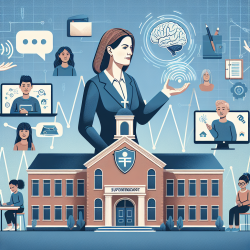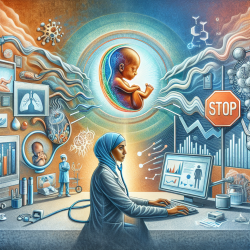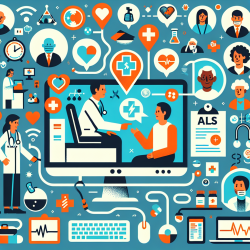The intersection of artificial intelligence (AI) and healthcare is a rapidly evolving field with the potential to significantly impact health outcomes worldwide. A recent research article titled "Artificial intelligence, ChatGPT, and other large language models for social determinants of health: Current state and future directions" highlights the importance of addressing social determinants of health (SDOH) in improving patient outcomes and promoting global health equity.
The Role of AI in Addressing Social Determinants of Health
Social determinants of health are non-medical factors that influence health outcomes. These include economic stability, education access, healthcare quality, neighborhood environment, and social context. The COVID-19 pandemic has underscored the critical role these factors play in exacerbating health inequalities.
AI technologies, including large language models (LLMs) like ChatGPT, offer transformative tools to address these determinants. By analyzing vast amounts of data, AI can help identify at-risk populations, predict disease outbreaks, and improve healthcare delivery.
Opportunities for Practitioners
- Disease Surveillance: AI can enhance disease surveillance by analyzing data to predict outbreaks and monitor public health interventions.
- Patient Care: LLMs can improve patient-provider communication by generating human-like responses and providing multilingual support.
- Risk Stratification: AI can stratify patients based on risk factors derived from SDOH data, allowing for targeted interventions.
The Challenges Ahead
The integration of AI into healthcare is not without challenges. Data standardization remains a significant hurdle, as SDOH data is often unstructured and varies across regions. Additionally, algorithmic bias can exacerbate existing health disparities if not carefully managed.
The environmental impact of training LLMs is another concern. These models require substantial computational resources, leading to high energy consumption and carbon emissions. Ethical considerations around data privacy and labor practices also need to be addressed.
Navigating These Challenges
- Data Standardization: Developing standardized frameworks for SDOH data collection is crucial for effective AI model development.
- Diverse Datasets: Ensuring diverse representation in training datasets can help mitigate algorithmic bias.
- Sustainable Practices: Implementing energy-efficient practices in model training can reduce environmental impact.
The Path Forward
A multitiered approach to digital inclusion is essential for maximizing the benefits of AI in healthcare. This includes improving digital literacy and ensuring equitable access to digital tools across diverse populations. Establishing global ethical frameworks for AI deployment will further ensure that these technologies are used responsibly and equitably.
The potential for AI to democratize healthcare access is immense. In low- and middle-income countries (LMICs), telehealth platforms coupled with innovative diagnostic tools can deliver specialist care in under-resourced settings. This democratization can lead to better resource distribution and improved health outcomes globally.










